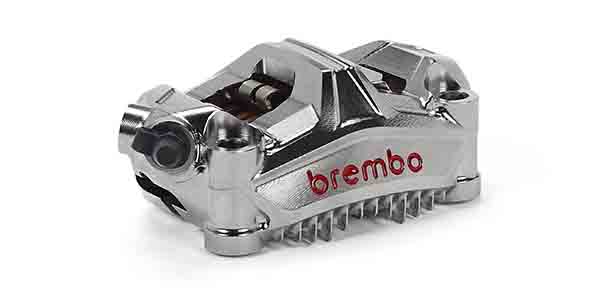In the last column we talked about what you can do when people don’t perform to your standards (November 2006). Specifically, we covered the actions you can take when there are skill issues and we talked about the people who couldn’t accomplish a designated task if their lives depended on it.
We relied heavily on a model created by Bob Mager, human performance expert extraordinaire. And again this month we will apply his work to our industry. In this issue we’re looking at what you might do when people don’t seem motivated to perform as requested.
When this happens, the first thing to ask yourself is: Am I somehow punishing them by asking them to perform a specific task?
Let’s review the situation from a salesperson’s perspective. For our first example, let’s say you want salespeople to ask walk-ins if they’d like a bottle of water, a soda or a cup of coffee while they shop. This welcoming behavior enhances customer comfort levels — but your salespeople aren’t doing it: Why? Is it because the salesperson feels it’s a waste of effort? No, most everyone would agree it’s a beneficial practice. Is it that they can’t perform? No. Everyone has the ability to offer and retrieve refreshments.
So Why Don’t They Do It?
Seems simple enough, doesn’t it? So why don’t they do it? In some cases refreshments might be in a dealer principal’s old refrigerator located back in the service department — a long hike across a 30,000-foot expanse. They may be worried about leaving the prospect alone for a period of time — lost minutes can result in a lost sale. While waiting, their prospects will probably be approached by other salespeople.
The solution is easy. Get a couple of mini-fridges from "Office Cheapo" and keep them up front by the
sales desks.
Here’s another example. Let’s say you have a salesperson who excels on most counts, except for turning in the forms for vehicle registrations in a timely manner. His manager has tried both encouragement and reprimands, but nothing works.
What’s causing this problem?
It might be a personality issue. Maybe every time the salesperson interacts with the office manager he feels like he’s walking into a buzzsaw because she’s mean as a snake? Most people will do anything to avoid an unnecessary confrontation. This simple task — from the salesperson’s perspective — is the worst kind of punishment.
I know what some of you are thinking, "Come on, suck it up. Just work with that acerbic office manager." However, there are other ways to resolve this problem. You can’t cure a personality conflict — but you can manipulate the process. You can create a buffer between the salesperson and the office manager. Maybe you can have your sales manager or some other salesperson deliver the essential papers on a regular basis?
Our next scenario involves a real world situation where salespeople weren’t offering financing to vehicle-purchasing customers.
We all understand that financial and insurance products are a convenience for customers and profit centers for dealerships. In this particular dealership salespeople were asked to get credit apps on customers, but they wouldn’t do it. (this is not a best practice — that’s a topic for another article.) Despite the fact that the salespeople fully understood the importance of offering F&I services, they would not provide credit applications unless customers specifically asked for them.
Why?
Because salespeople were asked to have these private conversations out in the open, at cafe tables on the showroom floor. It felt like punishment to be forced to pressure customers to reveal sensitive personal information in an inappropriate environment. Instead, they would have preferred to have these conversations in the relative privacy of an office or cubicle.
Simple Logic
Here’s what you need to keep in mind. It makes no difference what you think the person should or shouldn’t consider punishment. You need to realize that any mandate that lowers morale has the potential to damage dealership profitability.
Why proceed down a path that is getting you nowhere when there are such logical solutions? To emphasize my point, here’s another example:
It seemed like Steve was selling everything in sight. He earned an outstanding commission bonus, one of the rewards for a job well done. The next week his manager went to him and said, "We’re reducing your commission percentage because you made too much money last quarter." Steve’s performance started to slide. He stopped showing up early and stopped staying late. His customer service actions declined. Suddenly his sales manager was grumbling that, "Steve’s got a bad attitude. He really should want to do better."
You’re kidding, right? I don’t even need to explain this one.
Okay, last scenario: Have you ever had an employee who did a great job at a task everyone else hated? Maybe he’s a technician who does amazing work with tough transmission repairs. Or maybe the individual is detail-oriented and great with DMV paperwork, warranty claims processing or inventory counts.
From then on — because they’re so patient, skilled and determined — you decide to give them all of the assignments nobody else wants. Suddenly the great technician is getting the aggravating transmission repairs while the other guys are earning the same money for the easy stuff. You give him the assignment because he’s the only one who can do the job right, but think this through. You are rewarding mediocrity while punishing the dedicated employee who has exceptional determination and task management skills!
Obviously this logic is flawed. Think about your people, consider their viewpoints and pay attention to their reactions to your requests. If you are noticing hesitation, investigate. If there is any form of hidden punishment, remove it and watch the performance change.
Are Non-Performance Issues Kid’s Stuff?
In some cases you might wonder if the employee finds some weird satisfaction in non-performance.
For the answer, let’s look at the family dynamic. Most parents want their children to be well behaved. But while the children are playing quietly, the parents start thinking to themselves, "I need to get a few things done while they’re behaving."
Most children want attention from their parents. But when the children are playing quietly among themselves (the parents’ desired performance), they don’t get the attention they crave. However when they misbehave, they get their desired effect.
Okay, we would like to think managing the skilled professionals in your dealership is a far cry from supervising children, but the family dynamic does hold true within the dealership family. Attention from others can be a key factor in performance versus non-performance.
One example might be the dealership manager who doesn’t teach others a necessary skill. He keeps the expertise to himself, forcing other employees to come to him. By withholding information, he is able to get the attention he seeks. Who knew you needed an advanced degree in child psychology to run a dealership?
In some cases dealerships suffer because of misguided effectiveness measurement criteria.
We’ve all dealt with call centers. Let’s say you’re trying to place an order or get a customer service issue rectified. Have you ever noticed how quickly your call is handled or how short the time is before you’re transferred to someone else? Sure, absolutely, the call center agent’s job is to take care of customers. But how are they evaluated? On call time — the amount of time spent on the phone with customers. The faster they can get you off the line, the better. It is this thought process that allows them to service more customers. What they are being evaluated on is not true to their primary function.
Why the incongruence? Because call times are easy to measure. The computer does the calculations and — unlike customer satisfaction — it’s quantifiable.
Most people show up at work wanting to do a great job and if you can convince them that their lives will be improved by doing as you ask, you will enjoy the performance you seek. Improve human performance and watch your dealership’s performance improve! Sounds like child’s play doesn’t it? Next time we will elaborate on overcoming obstacles to optimum performance.














